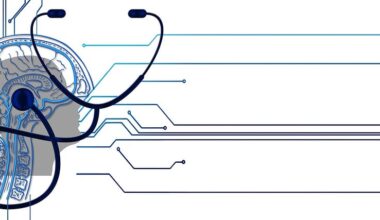Rest and Recovery: Keys to Growth During Bulking
In the demanding world of fitness competitions, prioritizing rest and recovery is often overlooked. Many athletes remain focused solely on training and nutrition, forgetting that recovery is crucial. Growth occurs during rest, not just lifting weights. Neglecting recovery can stall progress during a bulking phase. Recovery allows muscles to repair and grow after rigorous training sessions. Athletes need to ensure they get adequate sleep, as it plays a vital role in hormone regulation and muscle recovery. Quality sleep is essential for promoting overall health. Incorporating active recovery days also helps; activities like walking can enhance blood flow to muscles, relieving soreness. Additionally, it’s essential to listen to your body’s signals. If fatigue is persistent or muscles feel unusually torn, it’s time to take a break. Factor in recovery and rest strategically, planning workout schedules suitably. This balance ultimately enhances performance and leads to better results. Tracking recovery progress using fitness apps or journals can be beneficial. Keeping an eye on energy levels will inform adjustments needed for rest, aiding athletes in achieving their bulking goals.
The Importance of Sleep in Recovery
Sleep is a crucial component in the recovery process during the bulking phase. When you are asleep, your body undergoes vital reparative processes. The body releases essential hormones like testosterone and growth hormone during sleep, stimulating muscle growth and recovery. Lack of sleep can lead to decreased performance levels and fatigue, negatively impacting your training. Aim for seven to nine hours of quality sleep each night for optimal recovery benefits. Creating a sleep routine will assist in improving sleep quality. Aim to go to bed and wake up at the same time daily for better consistency. Avoiding screens before bedtime can also promote deeper sleep cycles. If necessary, consider relaxation techniques such as meditation or gentle yoga before sleep. A healthy sleep environment is essential too. Ensure your bedroom is dark, cool, and quiet for restful sleep. Using blackout curtains and white noise machines can help create a conducive environment. Additionally, consider the timing of your meals and avoid heavy foods close to bedtime. Good meals promote better recovery, preparing your body for effective sleep.
Nutrition plays an equally pivotal role in recovery during the bulking phase. It is not sufficient to simply lift weights; a strategic nutritional plan must complement your training efforts. Consuming a balanced diet rich in protein, complex carbohydrates, and healthy fats supports muscle repair and replenishes glycogen stores. Protein sources like chicken, fish, and legumes provide the amino acids necessary for muscle repair. Timing of your meals is critical; eating post-workout is essential to maximize recovery. Aim to consume a meal or shake rich in protein and carbohydrates within 30 minutes after training to kick-start recovery. Hydration also significantly impacts your recovery process. Drinking sufficient water aids in nutrient absorption and muscle recovery, helping to prevent cramps and fatigue. Consider including electrolyte-rich drinks after intense workouts as well. Additionally, incorporating a variety of vitamins and minerals through fruits and vegetables can enhance recovery and boost overall health. Supplements like creatine may also be beneficial during the bulking phase but should only be used after consulting with a healthcare professional. Make nutrition a priority for improved recovery success.
Active Recovery Techniques
Active recovery techniques are effective strategies for enhancing recovery during the bulking phase of fitness. They help promote blood circulation, reduce muscle soreness, and improve flexibility. Instead of total rest, engaging in light activities can actually aid muscle recovery. Consider activities like walking, cycling, or swimming on rest days. These exercises prevent stiffness while facilitating recovery. Stretching and foam rolling are also excellent practices to include in your routine. They alleviate tightness and maintain muscle length. Furthermore, yoga can enhance flexibility while calming the mind. Integrating these practices into your weekly schedule will contribute positively to your overall fitness progress. Active recovery not only aids physical recovery but also helps reduce mental burnout that can occur during a rigorous training regimen. Listening to your body remains vital; if a particular activity feels too intense, prioritize true rest instead. Additionally, always ensure to warm up properly before engaging in any active recovery exercises. This preparation reduces the risk of injury. Ultimately, making active recovery a staple ensures you are ready for your next workout, allowing continuous growth and development.
Moreover, incorporating rest days into your weekly plan is essential for recovery during the bulking phase. Not every day should be an intense training day; scheduled rest allows the muscles time to heal and grow. Training continuously without rest can lead to overtraining, manifested in fatigue and increased risk of injury. Aim for at least one to two rest days weekly, depending on your workout intensity and body response. Utilize these days for light activities or complete rest, allowing your body to recharge fully. During this time, focus on nutrition and hydration to further support recovery. Engaging activities like reading or leisure walks can help keep anxiety at bay while giving your muscles the well-deserved break they need. Listening to your body is paramount; if you feel overly fatigued, don’t hesitate to add more rest. Track your progress closely, noting energy levels and performance to adjust as needed. Rest days are crucial, not indicative of laziness. Incorporate them mindfully, ensuring balanced growth throughout your bulking phase. Remember, recovery is as important as the training itself for success.
The Role of Stress Management
Stress management is a critical aspect of recovery that is often overlooked in the context of fitness competitions. Chronic stress can negatively impact performance, leading to fatigue and reduced muscle growth. Stress affects hormone levels such as cortisol, which can inhibit recovery and increase fat storage. Therefore, managing stress effectively is essential for optimal recovery, especially during a bulking phase. Incorporating techniques such as mindfulness meditation, deep breathing exercises, or engaging in hobbies can significantly alleviate stress levels. Setting realistic fitness goals can help prevent feeling overwhelmed, making the journey to bulking more enjoyable. Additionally, maintaining social connections and having a support system is important. Sharing your fitness journey with friends or family members creates accountability and reduces stress in trying times. Always prioritize time for relaxation, ensuring that your mental well-being is a focus as you pursue physical growth. Keeping a balanced perspective on competition can also reduce anxiety and stress. Remember, fitness is a journey, and managing stress lays a strong foundation for lasting success and reward throughout the recovery phase.
In conclusion, focusing on rest and recovery is paramount during the bulking phase. By acknowledging the significance of sleep, nutrition, active recovery, and stress management, athletes can maximize their growth potential. Prioritize quality sleep to ensure hormonal balance, and follow a well-structured nutrition plan to support muscle repair and recovery. Incorporate active recovery workouts into your routine to enhance blood circulation and alleviate soreness, while respecting the necessity for rest days for overall muscle healing. Cultivating effective stress management skills can create a holistic approach to fitness and competition. Tracking progress and being mindful of body signals will help athletes make necessary adjustments to their training and recovery plans. Everything contributes to achieving successful bulking outcomes over time, combining all aspects of recovery. Balancing intense workouts with adequate recovery is vital for sustainable growth and long-term success in competitive settings. Don’t underestimate rest; it’s an integral component of performance in fitness competitions. Embrace the holistic benefits of recovery as part of your journey, fostering both mental and physical well-being to reach your desired goals.





